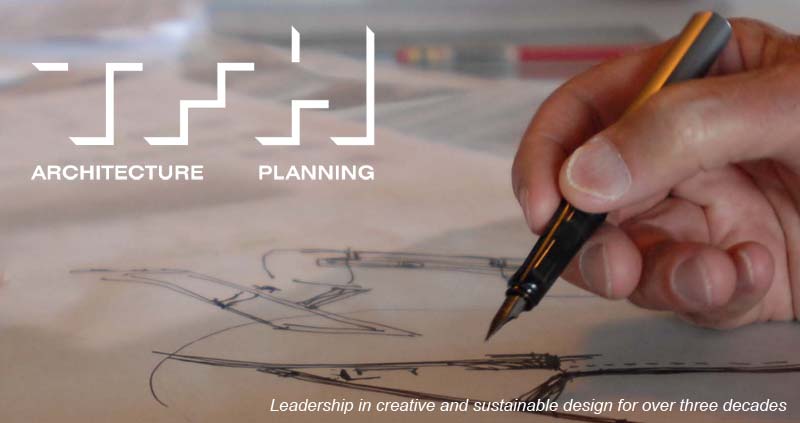
Dennis Morelli joins TFH Architects following employment at Cambridge Seven Associates in Cambridge. Dennis, along with his wife, relocated to Portland in April after several years in Boston. Dennis says Portland was a perfect fit for he and his wife, citing Maine’s way of life, attitude towards the built environment, and the calming balance between professional and personal life known to many Portland residents. As Dennis becomes comfortable here in Portland, he credits the city as being extremely manageable.
“Portland has all the amenities of a big city as well as an abundance of art and culture but it’s compacted into a manageable scale. The city is also far more affordable than many large cities when considering the great neighborhoods in close proximity to the downtown district.”
Before accepting employment with TFH Architects, Dennis did his homework. He found TFH to be likeminded in their commitment to environmental sustainability and design excellence. Dennis also enjoys the breadth and depth of projects TFH is involved in. During his time at Cambridge Seven Associates, Dennis was responsible for overseeing the construction of a 30,000 square foot youth center. Dennis credits this experience as providing him with a greater understanding of a design’s impact on the lives of people interacting with the built environment. Dennis tells us “drawing doesn’t compare to being there. Knowing the impact of design in the real world helps an architect gain perspective.”
When asked what it means to be a designer today, and how he hopes to positively impact the built environment, Dennis cites well-defined appropriately scaled spaces as a pathway to success. Dennis approaches the design process through big picture thinking. Considering the site and its impact on the surrounding environment is central to design decision-making. “Responsible placement of structures on-site can maximize our natural resources such as solar and wind power, while also providing desirable access to and from the property.” Dennis continually contemplates ways to minimize impact through informed design choices. “Structures should be elegant but also efficient, consider client needs and budget, and fit responsibly into the surrounding environment.”
Upon Dennis’ arrival in Maine, he not only enjoys his new position with TFH, but also enjoys his 1910 oceanside bungalow. Dennis and his wife have been working diligently to rehab the exterior paint by summer’s end, and will move renovation efforts indoors for the fall and winter seasons. Dennis’ training as an architect inspires him to dream of endless renovation possibilities for his seaside home. Many homeowners might agree with Dennis’ enthusiastic description of his new home as a “Perpetual Renovation.”


